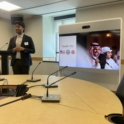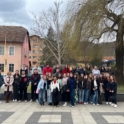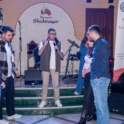Abdulaziz reflects on the highlights from serving as a mentor for CEW.
STORIES
Bringing Public Attention to Public Health
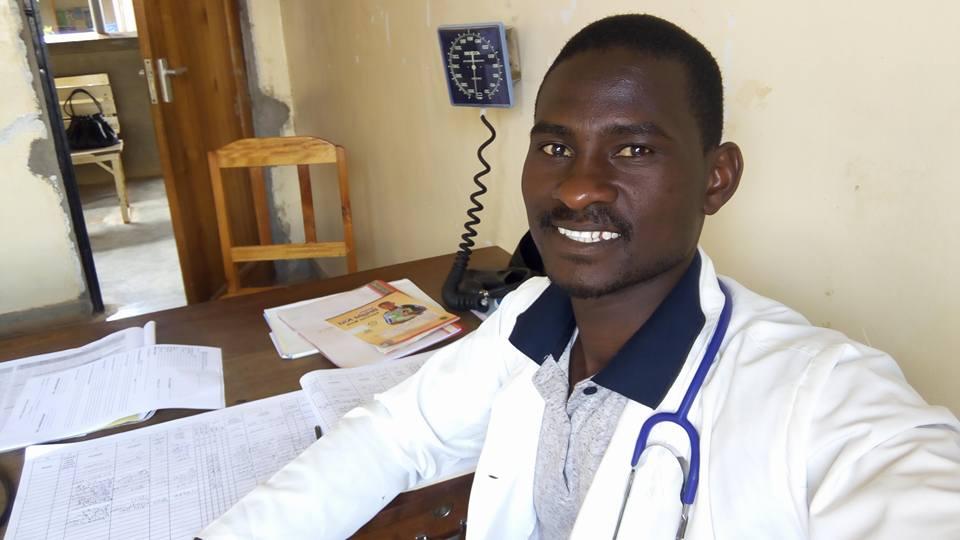
This story was originally published on the IRIS website.
Tanzania’s mountainous terrain can sometimes make it difficult for people to travel, especially Youth Exchange and Study (YES) alumni who get together for projects and other events. When they are not able to come together, many alumni work on individual projects in their local communities.
Daniel Laiser (YES alumnus 2009-2010, Tanzania, hosted by IRIS) continues to educate the public on the connection between good hygiene and a clean environment, and he starts by talking to primary school children.
After returning home from his year in Iowa, Daniel completed secondary school and high school with an advanced secondary school certificate. He then studied at Machame Health Training Institute in Kilimanjaro to become a clinical officer, and currently works at Ork Lutheran Hospital.
Last month, Daniel spoke at Orkesumet Primary School, giving the students information on how to prevent communicable diseases such as malaria, cholera, schistosomiasis and intestinal worms.
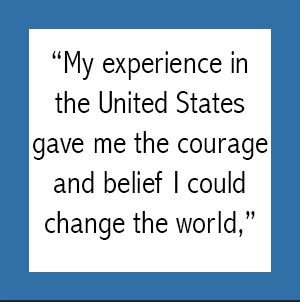
Daniel’s work is also vital in fighting the spread of HIV/AIDS and other sexually transmitted diseases. Schistosomiasis, a parasitic infection known to increase a person’s likelihood of getting HIV/AIDS, affected over 200 million people in 2012, with 85 percent of those cases recorded in African countries according to The American Journal of Tropical Medicine and Hygiene.
As a medical clinician, Daniel realized he couldn’t simply treat people after they contracted the disease, and instead began to inform communities on disease prevention.
“I feel very bad when I receive patients who are suffering from diseases which can be prevented at an individual level by maintaining a clean environment and personal hygiene,” Daniel said.
Daniel recruited two of his colleagues to help with the project at Orkesumet Primary School. The team spoke with students about how clean, safe environments lead to good health, while dirty, unsafe environments lead to poor health and disease.
After learning about this connection between environmental safety and personal hygiene, the group planted and watered a few trees in the schoolyard. A recent press release from Science Daily reported that trees help protect areas against the spread of malaria by eliminating standing water, creating a habitat for natural predators and some trees even having the ability to give off a natural mosquito repellant.
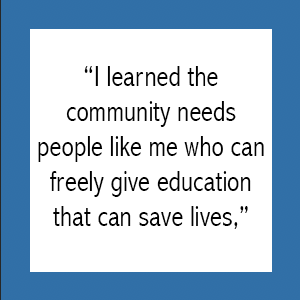
Students engaged in the activity, and staff at the school invited Daniel and his colleagues back to discuss other issues and possible solutions in the future.
Daniel credits the YES program for teaching him skills he actively uses in his work and projects.
“My experience in the United States gave me the courage and belief I could change the world,” Daniel said. “I also gained leadership skills such as taking initiative, public speaking and self-awareness.”
Seeing the students actively engaged in learning about their surroundings proved to Daniel that what he is doing is making an impact on the community. Benefitting both the people and Daniel, the outcomes of these educational service projects affirms to Daniel the importance of his work.
“The [students] gained so much knowledge about planting and protecting trees to share with their fellow classmates and their parents, and also the health benefits of washing hands after using toilets and before eating food,” Daniel said. “I learned the community needs people like me who can freely give education that can save lives, and I gained strength to do more community service projects in the future.”


